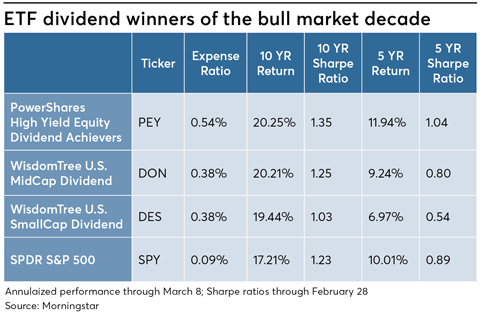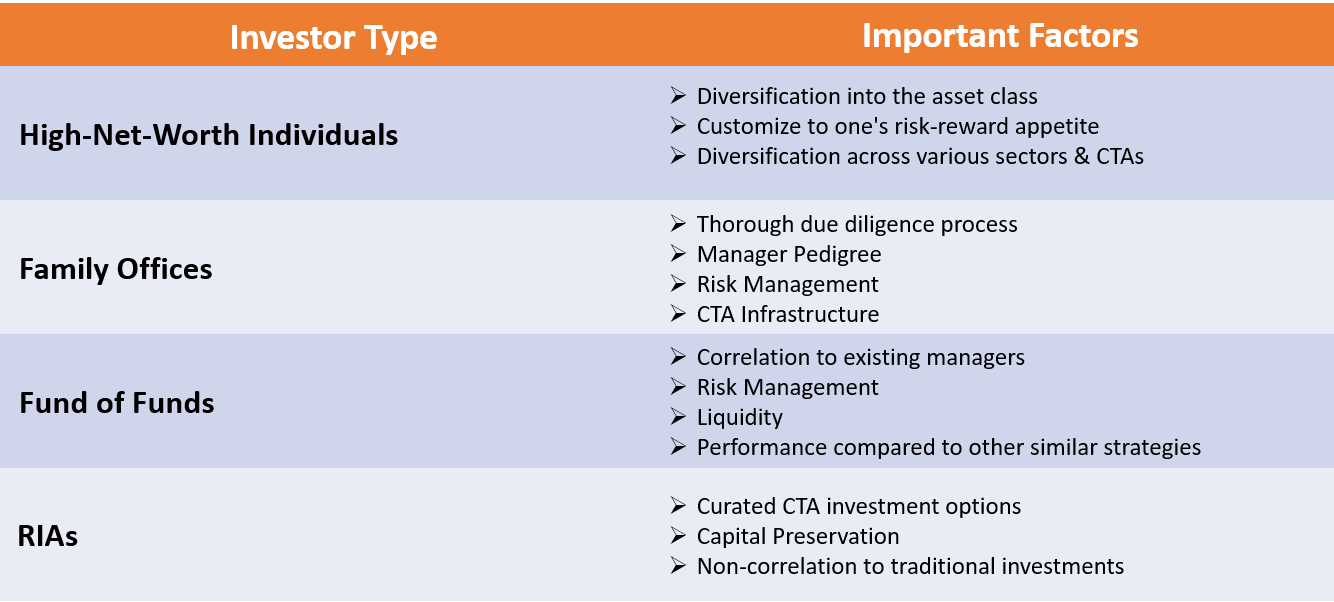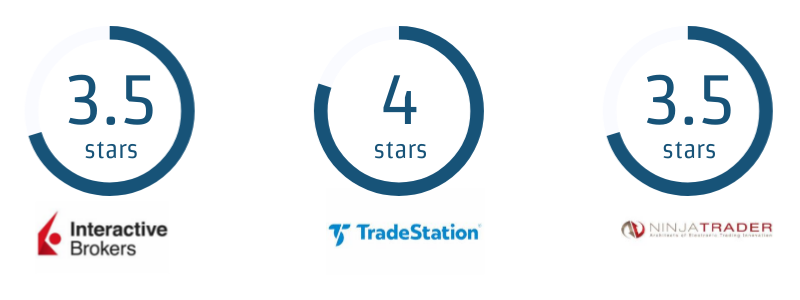
There are many factors to consider when looking for dividend-growth stocks within the S&P 500 index. You should aim to achieve positive growth in earnings per shares over the next five year, so your dividend risk score should not exceed 'C'. Higher dividend yields than the S&P 500 index are best for dividend growth stocks. This article will cover the top Consumer Discretionary stocks, including NKE. Target and Cigna also featured.
NKE is the number one stock in the Consumer Discretionary segment.
The Consumer Discretionary sector includes goods and services like clothing, restaurants, and travel. These stocks usually perform better in periods of high economic growth, but they struggle to survive in difficult economic times. This sector boasts several top performers including NKE. The company's recent earnings growth has been especially encouraging, as has its dividend growth rate.
As a dividend growth stock, Nike is a popular holding in both Vanilla and Active ETFs. Broad-based ETFs tend to have a greater percentage of Nike shares. The Fidelity High Dividend ETF, FDX is the best performing ETF that has NKE holdings.

Sheng Siong
Investors looking for a steady dividend payout will love Sheng Siong. Since 2011, the Singaporean bank has raised its dividend payout every year. It also has a long history of increasing it each year. Dividends are paid twice a year by the company. The final dividend is paid in February while an interim dividend is paid May. Since 2015, the company has paid over 11% annually. The dividend was 2.75 Singapore cents per shares in 2012.
The Sheng Siong group companies can provide steady growth in dividend yields for investors. The company has 63 stores in Singapore and recently began expanding to China. Despite recent Singapore authorities' tightening announcements, shares of the company rose 11% on 14/05/2015. Investors will enjoy a dividend yield that is higher than the Singapore stock market. You should make sure to read Sheng Siong's financial statements before you invest.
Target
Target is a great option if you're looking for steady cash flow, but also to increase your dividend payouts. Target's dividend payouts are more than doubled and Target's cash flow is strong. Over the past five-years, Target has earned $5.4 billion in free capital flow and paid out just under $1 billion in dividends. Check out our Dividend growth stocks model portfolio to see more.
Target is a discount retailer giant and recently announced a 20.0% rise in its quarterly dividend. The company's growth in dividends spans 55 year. It is the largest general merchandise discount retailer in the country and competes against Amazon, Costco, Walmart, and Amazon when it comes to consumer spending. Target places a high priority on quality products and competitive pricing. Target's stock prices have risen by more than 20% over the last year making it a solid choice for investors seeking dividend growth.

Cigna
Cigna dividend stock growth stocks can be a good way to get the income you desire. You don't have to spend a lot on the stock. The company's dividend payout ratio is fairly low compared to its peers, which may be a good thing if the company believes in long-term growth. Its most recent dividend payment was made on 22 June 2022. Shareholders who bought stock prior to that date will be paid a dividend.
The company is divided into two segments, Evernorth and Cigna Healthcare. Evernorth offers healthcare services and pharmacy benefits management solutions (PBM) to customers. The healthcare segment covers medical, dental, or related products. Evernorth concentrates on U.S. Governments, and corporate businesses. Cigna Healthcare is a provider of health insurance products and services in America and internationally.
FAQ
What is a bond and how do you define it?
A bond agreement between two people where money is transferred to purchase goods or services. It is also known to be a contract.
A bond is usually written on paper and signed by both parties. The bond document will include details such as the date, amount due and interest rate.
A bond is used to cover risks, such as when a business goes bust or someone makes a mistake.
Sometimes bonds can be used with other types loans like mortgages. This means the borrower must repay the loan as well as any interest.
Bonds are also used to raise money for big projects like building roads, bridges, and hospitals.
It becomes due once a bond matures. When a bond matures, the owner receives the principal amount and any interest.
If a bond does not get paid back, then the lender loses its money.
What is a REIT?
An REIT (real estate investment trust) is an entity that has income-producing properties, such as apartments, shopping centers, office building, hotels, and industrial parks. They are publicly traded companies which pay dividends to shareholders rather than corporate taxes.
They are very similar to corporations, except they own property and not produce goods.
What's the difference between marketable and non-marketable securities?
The key differences between the two are that non-marketable security have lower liquidity, lower trading volumes and higher transaction fees. Marketable securities, however, can be traded on an exchange and offer greater liquidity and trading volume. Marketable securities also have better price discovery because they can trade at any time. This rule is not perfect. There are however many exceptions. There are exceptions to this rule, such as mutual funds that are only available for institutional investors and do not trade on public exchanges.
Non-marketable securities can be more risky that marketable securities. They are generally lower yielding and require higher initial capital deposits. Marketable securities can be more secure and simpler to deal with than those that are not marketable.
For example, a bond issued in large numbers is more likely to be repaid than a bond issued in small quantities. The reason is that the former will likely have a strong financial position, while the latter may not.
Investment companies prefer to hold marketable securities because they can earn higher portfolio returns.
How does inflation affect the stock market
Inflation is a factor that affects the stock market. Investors need to pay less annually for goods and services. As prices rise, stocks fall. You should buy shares whenever they are cheap.
What's the difference between a broker or a financial advisor?
Brokers are specialists in the sale and purchase of stocks and other securities for individuals and companies. They manage all paperwork.
Financial advisors can help you make informed decisions about your personal finances. They can help clients plan for retirement, prepare to handle emergencies, and set financial goals.
Banks, insurers and other institutions can employ financial advisors. They could also work for an independent fee-only professional.
Take classes in accounting, marketing, and finance if you're looking to get a job in the financial industry. Also, it is important to understand about the different types available in investment.
Statistics
- Individuals with very limited financial experience are either terrified by horror stories of average investors losing 50% of their portfolio value or are beguiled by "hot tips" that bear the promise of huge rewards but seldom pay off. (investopedia.com)
- Our focus on Main Street investors reflects the fact that American households own $38 trillion worth of equities, more than 59 percent of the U.S. equity market either directly or indirectly through mutual funds, retirement accounts, and other investments. (sec.gov)
- Ratchet down that 10% if you don't yet have a healthy emergency fund and 10% to 15% of your income funneled into a retirement savings account. (nerdwallet.com)
- Even if you find talent for trading stocks, allocating more than 10% of your portfolio to an individual stock can expose your savings to too much volatility. (nerdwallet.com)
External Links
How To
How to Open a Trading Account
First, open a brokerage account. There are many brokers out there, and they all offer different services. There are many brokers that charge fees and others that don't. Etrade (TD Ameritrade), Fidelity Schwab, Scottrade and Interactive Brokers are the most popular brokerages.
After you have opened an account, choose the type of account that you wish to open. Choose one of the following options:
-
Individual Retirement accounts (IRAs)
-
Roth Individual Retirement Accounts
-
401(k)s
-
403(b)s
-
SIMPLE IRAs
-
SEP IRAs
-
SIMPLE 401(k).
Each option comes with its own set of benefits. IRA accounts provide tax advantages, however they are more complex than other options. Roth IRAs allow investors deductions from their taxable income. However, they can't be used to withdraw funds. SIMPLE IRAs are similar to SEP IRAs except that they can be funded with matching funds from employers. SIMPLE IRAs are simple to set-up and very easy to use. These IRAs allow employees to make pre-tax contributions and employers can match them.
The final step is to decide how much money you wish to invest. This is called your initial deposit. You will be offered a range of deposits, depending on how much you are willing to earn. A range of deposits could be offered, for example, $5,000-$10,000, depending on your rate of return. The lower end represents a conservative approach while the higher end represents a risky strategy.
You must decide what type of account to open. Next, you must decide how much money you wish to invest. There are minimum investment amounts for each broker. The minimum amounts you must invest vary among brokers. Make sure to check with each broker.
After choosing the type account that suits your needs and the amount you are willing to invest, you can choose a broker. Before choosing a broker, you should consider these factors:
-
Fees - Make sure that the fee structure is transparent and reasonable. Many brokers will offer trades for free or rebates in order to hide their fees. Some brokers will increase their fees once you have made your first trade. Be cautious of brokers who try to scam you into paying additional fees.
-
Customer service: Look out for customer service representatives with knowledge about the product and who can answer questions quickly.
-
Security - Choose a broker that provides security features such as multi-signature technology and two-factor authentication.
-
Mobile apps - Find out if your broker offers mobile apps to allow you to view your portfolio anywhere, anytime from your smartphone.
-
Social media presence - Check to see if they have a active social media account. If they don’t, it may be time to move.
-
Technology – Does the broker use cutting edge technology? Is the trading platform simple to use? Are there any glitches when using the system?
Once you've selected a broker, you must sign up for an account. Some brokers offer free trials. Others charge a small amount to get started. After signing up you will need confirmation of your email address. Next, you'll have to give personal information such your name, date and social security numbers. The last step is to provide proof of identification in order to confirm your identity.
Once verified, you'll start receiving emails form your brokerage firm. These emails contain important information and you should read them carefully. The emails will tell you which assets you are allowed to buy or sell, the types and associated fees. Keep track of any promotions your broker offers. These promotions could include contests, free trades, and referral bonuses.
Next, open an online account. Opening an online account is usually done through a third-party website like TradeStation or Interactive Brokers. Both websites are great resources for beginners. When you open an account, you will usually need to provide your full address, telephone number, email address, as well as other information. Once this information is submitted, you'll receive an activation code. Use this code to log onto your account and complete the process.
Once you have opened a new account, you are ready to start investing.